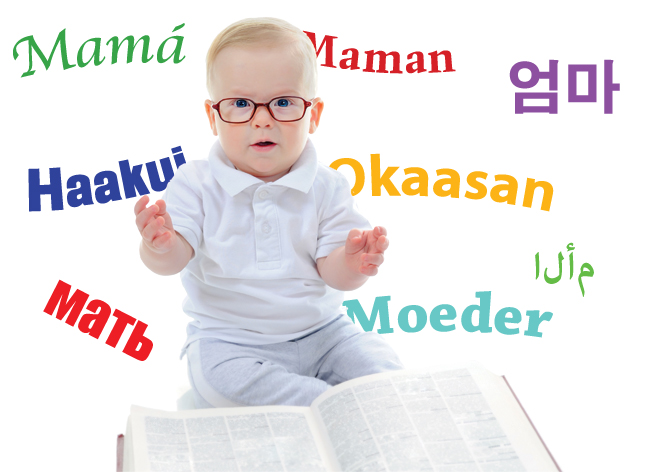References: Kovács, Á. M., & Mehler, J. (2009). Cognitive gains in 7-month-old bilingual infants. Proceedings of the National Academy of Sciences, 106(16), 6556-6560.
How does a baby cope with hearing different languages? Does being exposed to multiple languages impact babies before they can even talk? Psychology researchers conducted a study to better understand whether bilingualism had an effect on a child’s very early development. Participants included 7-month-old infants living in similar socio-economic conditions that were either raised with one language or exposed to two languages from birth. Infants were given an audio cue and then shown a puppet on one side of a screen. Both bilingual and monolingual groups quickly learned to look at the side of the screen in anticipation of the puppet. Next, the position of the puppet changed and it began appearing on the opposite side of the screen. Those infants being raised in a bilingual environment rapidly learned to adapt their anticipatory gaze to the new direction. Those infants exposed to only one language did not. The researchers concluded that being exposed to multiple languages led to improved cognitive abilities, such as controlling attention, monitoring conflict, planning, and inhibiting of habitual responses. Consider exposing your children to different languages. It may help them develop their potentials!
Written by Mara Rowcliffe, MS.

